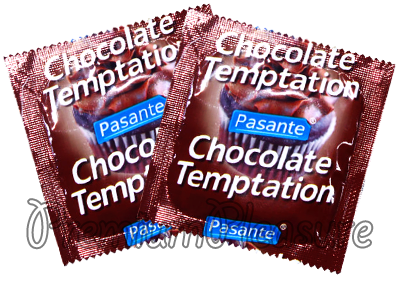As you probably know by now, there is a greater concentration of US armed forces in the Middle East today than at any time since 2003. Yet there has been no attack by any country there against America. There have been over time threats and attacks against US warships in the region prior to the military buildup, but with little consequence.
 |
| From the Wall Street Journal, free link to article: https://www.wsj.com/world/middle-east/iran-middle-east-us-military-7400d800?st=du2MWT&reflink=desktopwebshare_permalink |
The American forces are, of course, directed toward Iran. Last June, President Trump ordered US Air Force B-2 bombers to bomb Iran's nuclear-weapons production facilities, specifically those used to process uranium and related materials. This was done with great success, though whether those facilities can be reconstituted is uncertain.
In early January, massive demonstrations against Iran's dictatorial regime began by Iranians began across the country. They continued for more than a month, although the regime suppressed them with increasing brutality; Britain's The Guardian reports 30,000 or more were killed. It was during those demonstrations that the American naval buildup began in the region. In early January 2026, Trump stated the U.S. was "locked and loaded and ready to go" to support protesters. No such action was taken, but the American buildup continued.
Presently, the US and Iran have delegations in Oman negotiating over the future of Iran's nuclear program.
Iran and the United States have differing views over sanctions relief in talks to curb Tehran’s nuclear ambitions, a senior Iranian official told Reuters on Sunday, adding that new talks were planned in early March as fears of a military confrontation grow.
Iran and the U.S. renewed negotiations earlier this month to tackle their decades-long dispute over Tehran’s nuclear programme as the U.S. builds up its military capability in the Middle East, fuelling fears of a wider war.
Iran has threatened to strike U.S. bases in the Middle East if it is attacked by U.S. forces.
“The last round of talks showed that U.S. ideas regarding the scope and mechanism of sanctions relief differ from Iran’s demands. Both sides need to reach a logical timetable for lifting sanctions,” the official said.
“This roadmap must be reasonable and based on mutual interests.” Iran’s Foreign Minister Abbas Araqchi said on Friday that he expected to have a draft counterproposal ready within days, while U.S. President Donald Trump said he was considering limited military strikes.
The prospect of American war against Iran is real, though its probability can't be assessed with any degree of assurance. This essay is my assessment of the prospective war in the context of Just War Theory (JWT henceforth), a theological inquiry in Christianity going back at least to Saint Augustine, 354-430. It's most robust treatment was by St. Thomas Aquinas, 1225-1274, whose exposition was so thorough that it still forms the basis of modern theory. I have written over the years quite a bit about JWT in different contexts.
Today my main points are that going to war justly requires that at least these questions to be answered in the affirmative, below.
- Is there just cause for the war?
- Is the war authorized by proper authority?
- Is it wise, as far as we can discern, to wage the war?
- Is there a just objective to waging war?
1. Is there just cause for war?
Since just cause (meaning justifiable cause) is a basic tenet of JWT, it must be addressed. However, as I explained just above, we already are at war with Iran, which it initiated based on Shia Islam eschatology. When presented with such a fait accompli, asking whether we should recognize and act on that fact has no basis. On Dec. 8, 1941, President Roosevelt did not ask the Congress to declare going to war with Japan, but simply to declare that the state of war already existed.
The question, then, is what is the justifiable conduct of the war we are already in. That is a question of our objective to end the war and of the means we use to do so: What constitutes a level of violence inflicted upon Iran's regime and armed forces that is would effectively deter them from attacking Americans or especially developing and using atomic weapons?
That is, from the Trump administration's view, the very point of the negotiations with Iran in Oman today, to achieve that goal without military force - but with its threat looming always in the background. The American objectives to end the war must be tightly defined to enable planners and assessors to determine what must be done to achieve them, though certainty will not be possible.
2. Is the war authorized by proper authority?
The US Constitution clearly grants to Congress, and only to Congress, the authority to "declare war." However, the Constitution does not define what constitutes a declaration. As then-Senator Joe Biden accurately explained in 2001, the Congress has declared war when the Congress thinks it has. Hence, he said, an Authorization for the Use of Military Force meets Constitutional muster as a declaration of war.
I happen to be a professor of Constitutional law. I'm the guy that drafted the Use of Force proposal that we passed. It was in conflict between the President and the House. I was the guy who finally drafted what we did pass. Under the Constitution, there is simply no distinction between a formal declaration of war, and an authorization of use of force. There is none for Constitutional purposes. None whatsoever.
Constitutional lawyers over the decades have held that varying kinds of enabling acts, such as monetary appropriations for military action, have also amounted to Constitutional satisfaction and, at least, consent of the Congress to action ordered by the president, in whom the Constitution grants authority to conduct warfare.
Since the dawn of the American republic, the Congress and the presidents have generally agreed that the president may order US forces into combat against another nation, solely on his own authority, if and only if there is:
- Imminent danger of attack from the other power, so imminent that time taken for Congressional deliberations would hinder defense against it, or,
- To protect actual threat against US citizens abroad, or to rescue them from actual danger.
3. Is it wise, as far as we can discern, to wage the war?
With war already a fact, the question is how to wage it wisely. However, this question is really one of setting the national objectives and predicting their consequences. But that will always be broadly uncertain and as cannot be well answered except retrospectively. But doing nothing or taking indecisive actions would be profoundly unwise.
The question of wisdom must be faced because JWT has long held that waging war futilely is it self unjust, no matter the justification of other tenets of JWT. And that leads directly to the doctrine of proportionality, which so many people think means that we may not respond to an attack with more force than the attacker used. It absolutely does not mean that.
As I explain in my essay, What does "Just War" mean?,
The doctrine of proportionality is simply stated that the means of conducting the war must be proportionate to the goal for which the war is waged. Another way of looking at it is that while the just ends desired do not justify any means to attain them, they absolutely justify some means. The tenet of proportionality, then, is to assess what the justified means are, then employ those means and not the unjustified ones. ...
Hence, proportionality means that one cannot use more force than necessary, but must use all the force that is necessary. It is critical to understand that proportionality does not mean, and never has meant, anything like a tit-for-tat response.
4. Is there a just objective to waging war?
At a minimum, a just objective to the war must be cessation of hostilities by Iran upon US persons and facilities. That means to do that range from settling treaty agreements in Oman to using military force against Iran and its proxy militias. I personally am sure that Iran will not ever cease its warfare against the US and our interests (and allies) unless the ayatollah regime is ended and the IRGC is destroyed.
That is exactly is the reason that Congressional and public debate must be entered into sooner rather than later. Actively warring against Iran may be the right thing to do (or maybe the least-bad option) but it must be the right way politically, strategically, and tactically. And IMO, that starts with explanations to the public of what is at stake and sober discussions in the Congress. What I do not affirm is that this or a successor president should wage this war on his own authority only.


















